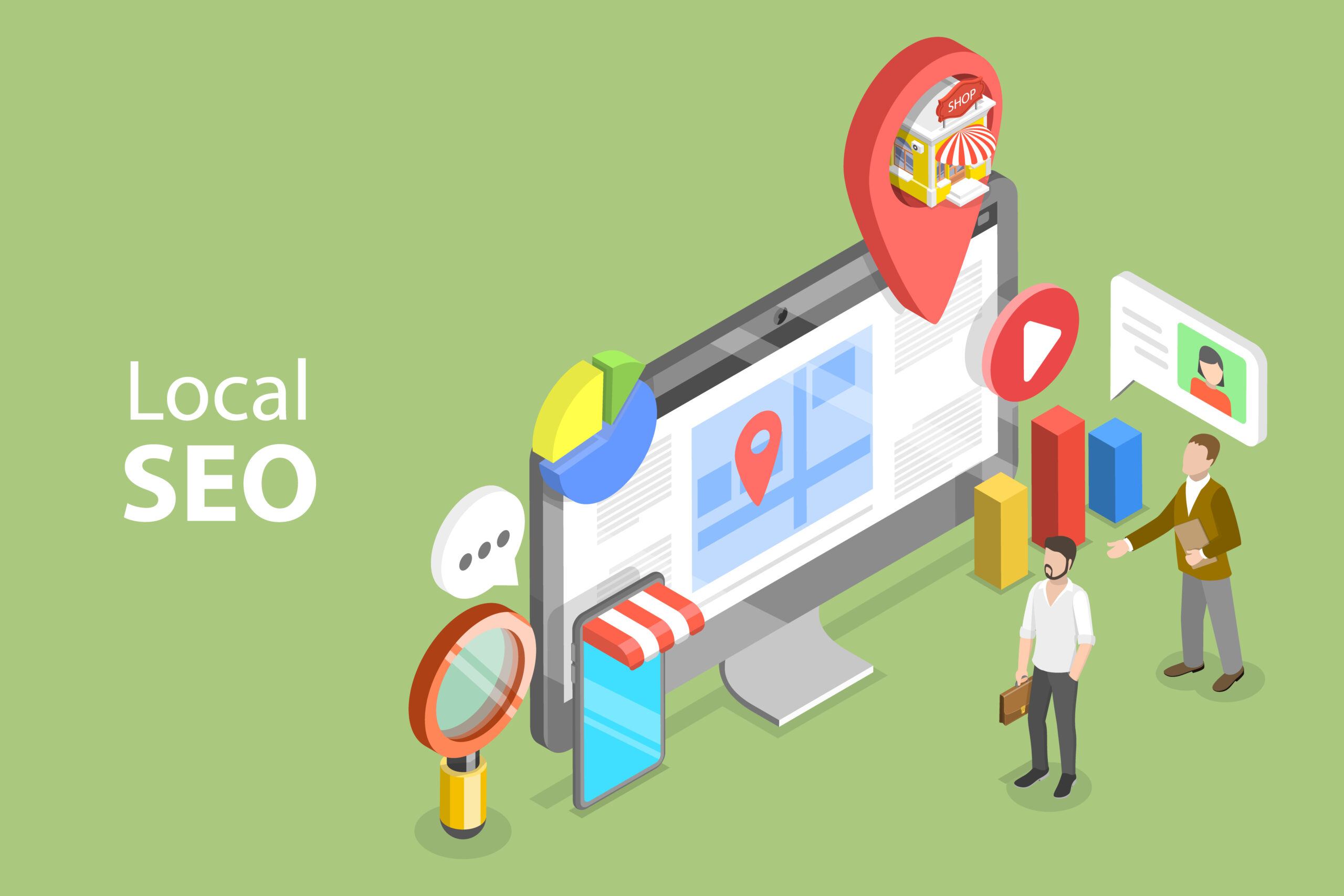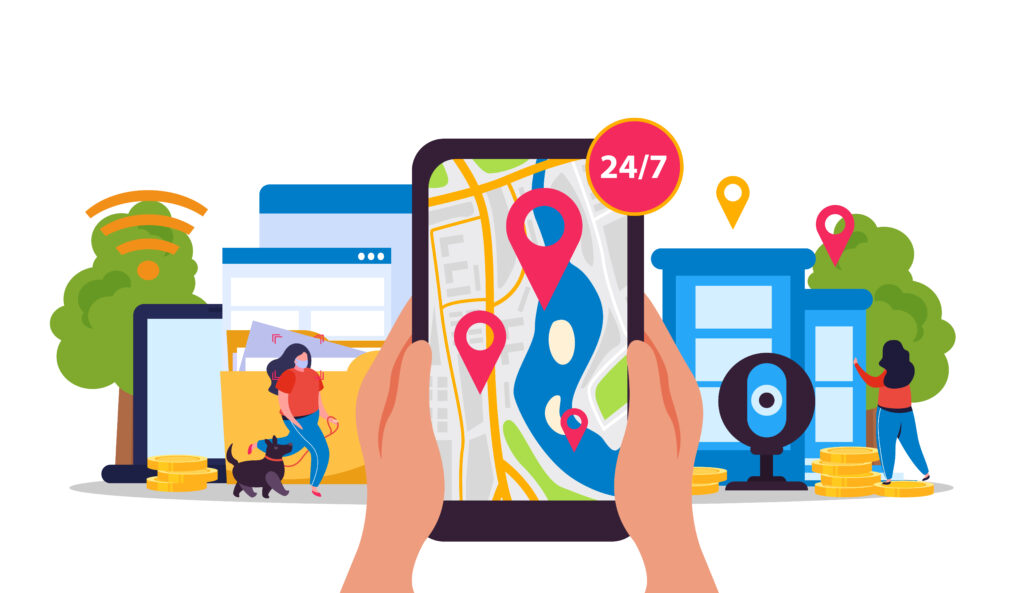
In today’s hyper-competitive digital landscape, showing up in local search results isn’t just a bonus—it’s a necessity for businesses that depend on local customers. Whether you run a neighbourhood café, a dental clinic, a law firm, or a professional digital marketing agency like Digital Omnitech, mastering Local SEO (Search Engine Optimization) can transform your online visibility and lead generation. But how can you be sure your local SEO efforts are delivering real results? The answer lies in tracking the right performance metrics.
In this comprehensive blog, we’ll explore why tracking local SEO metrics matters, break down the 9 most important KPIs (Key Performance Indicators), and walk you through exactly how to measure and improve your performance using data-driven strategies. If you’re new to local SEO or looking to improve your current strategy, this guide will equip you with everything you need to succeed in your market.

Why Tracking Local SEO Performance Matters
Many businesses claim their Google Business Profile, gather reviews, and sprinkle in local keywords—but without regularly tracking results, these efforts may not translate into meaningful business growth. Monitoring specific Local SEO KPIs allows you to:
- Gauge Local Visibility: Understand if and how often your business shows up in Google Search and Maps. This helps you identify whether your presence is consistent across target areas and how well you’re competing locally.
- Measure User Engagement: Track how users are interacting with your business online—whether they’re calling, clicking through, or browsing your services.
- Track ROI & Conversion Metrics: Evaluate if your SEO efforts are converting into calls, visits, and paying customers. High rankings are great, but real value lies in results.
- Identify Optimization Opportunities: Spot what’s working and uncover gaps that can be fixed to drive better results—such as updating service areas, refining keywords, or enhancing content.
Ultimately, tracking these metrics ensures that your local SEO strategy is moving in the right direction and allows for smart, data-backed decisions that lead to business growth. You can explore more actionable insights on our Local SEO services page.
9 Core Metrics to Track Local SEO Success
1. Google Business Profile (GBP) Insights
Your Google Business Profile is your digital storefront, especially for local mobile searches. GBP insights help you understand how people are discovering and engaging with your listing.
What to Track:
- Search Appearances: How often your GBP appears in search results or Google Maps for branded and non-branded queries.
- User Actions: Number of calls, direction requests, website visits, photo views, and bookings initiated through your listing.
- Photo Views & Engagement: Monitor engagement with your photos and videos to evaluate visual appeal.
Why it Matters: These insights reveal how effectively your profile is driving real user actions. If views are high but actions are low, it might be time to refresh your content or add missing information.
Pro Tip: Post regularly on your GBP, highlight special offers, and ensure that business hours, categories, and descriptions are accurate and keyword-optimized for local SEO.
2. Local Keyword Rankings
Local keyword rankings show where your website appears in search engine results for queries that include local intent.
What to Track:
- Performance of location-based keywords (e.g., “best dentist in Pune”).
- Rankings by proximity and device (desktop vs. mobile).
- Visibility in the “Local Pack” or map results.
Why it Matters: Ranking high for local keywords helps you stay top-of-mind when nearby customers are ready to buy. It also enables you to assess competition and make content improvements to gain visibility.
Recommended Tools: Google Search Console, Ahrefs, BrightLocal, and SEMrush offer geo-targeted keyword tracking capabilities for local SEO strategies.
3. Click-Through Rate (CTR)
CTR reflects how many users clicked your listing or website link after seeing it in search results.
What to Track:
- CTR on both organic results and GBP listings.
- Performance across different pages, queries, and locations.
Why it Matters: A low CTR with good rankings indicates that your listings aren’t compelling enough. Improving meta titles, descriptions, and using structured data (like reviews or FAQs) can make your listings more clickable.
Tip: Include action-oriented phrases (e.g., “Book Now”, “Call Today”) and city names in your meta content to support local SEO effectiveness.
4. Customer Reviews & Ratings
Reviews influence not just search rankings, but also customer trust and decision-making.
What to Track:
- Quantity and quality of reviews across platforms (Google, Yelp, Facebook).
- Review velocity (how frequently you receive reviews).
- Keywords or topics frequently mentioned.
Why it Matters: Google uses review signals as part of its local ranking algorithm. Positive and frequent reviews give your listing credibility and social proof.
Strategy: Use review generation campaigns and tools like GatherUp or Podium. Respond to every review—positive or negative—to show customers you care and to boost your local SEO credibility.
5. NAP Consistency (Name, Address, Phone)
NAP consistency is about having the same business information across all directories and platforms.
What to Track:
- Uniformity of details on your website, Google, social media, and third-party listings.
- Existence of outdated or duplicate citations.
Why it Matters: Inconsistent information confuses users and search engines, leading to lower rankings and missed business.
Tools to Use: BrightLocal, Moz Local, and Yext help track and fix citation issues effectively, ensuring local SEO integrity.
6. Local Backlinks
Local backlinks come from other websites within your community or service area, and they carry location relevance.
What to Track:
- Number of referring domains from your locality.
- Anchor text relevance and domain authority.
- Referral traffic coming from local publications or directories.
Why it Matters: Local backlinks reinforce your relevance to a particular area. Search engines see these links as “votes” of credibility within your community.
Tactics: Join local chambers of commerce, sponsor local events, or write columns for local online media outlets to build backlinks naturally that support your local SEO.
7. Mobile Clicks & Engagement
Most local searches happen on smartphones. Monitoring how mobile users interact with your site or GBP is vital.
What to Track:
- Mobile call clicks, tap-to-direction actions, and bounce rates.
- Load time and usability on mobile devices.
Why it Matters: If your mobile experience is slow or clunky, users will leave quickly—leading to lost leads. High engagement rates from mobile users can indicate effective mobile design.
Tips to Improve: Use a responsive website layout, compress images, enable AMP (Accelerated Mobile Pages), and prioritize mobile-first design to enhance your local SEO experience.
8. Website Local Landing Page Traffic
Local landing pages are essential for multi-location businesses. Each page should target specific city-based searches.
What to Track:
- Traffic sources (organic, referral, direct) to each local landing page.
- Engagement metrics like average time on page, bounce rate, and goal completions.
Why it Matters: These pages help convert local searchers into customers. Poorly performing pages may lack local relevance or strong CTAs.
Improve by: Adding city names in headings, embedding Google Maps, showcasing local testimonials, and including service-specific content to enhance local SEO value.
9. Conversion Actions (Calls, Forms, Chats)
Conversions are the true indicator of whether your SEO strategy is profitable.
What to Track:
- Call tracking via dynamic phone numbers.
- Form submissions tracked through Google Analytics.
- Chat or bot engagement.
- Store visits, tracked using UTM parameters or foot traffic tools.
Why it Matters: More than just traffic, you need actions that generate leads or sales. Analyzing conversion patterns helps you allocate resources effectively.
Use Tools Like: CallRail, Google Tag Manager, and heatmap tools like Hotjar or Microsoft Clarity to boost local SEO conversion performance.

How to Measure and Improve Your Performance Using These KPIs
Understanding what to track is just the first step. Here’s how to turn metrics into measurable improvements:
1. Set Clear Benchmarks and Goals Before making changes, establish baseline metrics. Set SMART goals (Specific, Measurable, Achievable, Relevant, Time-bound) for each KPI. For example, aim to grow your local landing page traffic by 30% in 90 days.
2. Use Reliable Analytics Tools Tools like Google Analytics 4, Google Search Console, and BrightLocal help you track progress and identify bottlenecks. These tools are essential for maintaining a strong local SEO foundation.
3. Optimize Regularly Based on Data Use insights to refresh your content, refine your GBP, or fix technical SEO issues. Pages with high impressions but low CTR? Update meta tags. Mobile engagement low? Improve mobile experience.
4. Conduct Monthly Performance Audits Audits help you spot trends, address issues proactively, and continuously refine your strategy. Include technical SEO checks, NAP updates, and review generation tasks in your audits.
5. A/B Test and Iterate Test different CTAs, titles, layouts, or landing page elements to see what drives better results. Make data-backed decisions and document what works best for your audience.
6. Collaborate Across Channels Leverage high-performing SEO insights in paid media campaigns. For example, keywords that rank well organically can become part of your Google Ads strategy.
7. Get Expert Help When Needed Partnering with an experienced local SEO agency can save time and drive better results. If you’re looking for professionals who understand data-driven SEO, check out our Local SEO services or explore our homepage for more digital solutions.
Local SEO is not a one-time setup—it’s an ongoing strategy. By consistently tracking, analysing, and acting on the right KPIs, you empower your business to not only gain visibility but also convert that visibility into meaningful growth.
Ready to dominate your local search space? Connect with Digital Omnitech to discuss your local SEO game plan and watch your business thrive in your neighbourhood and beyond.



